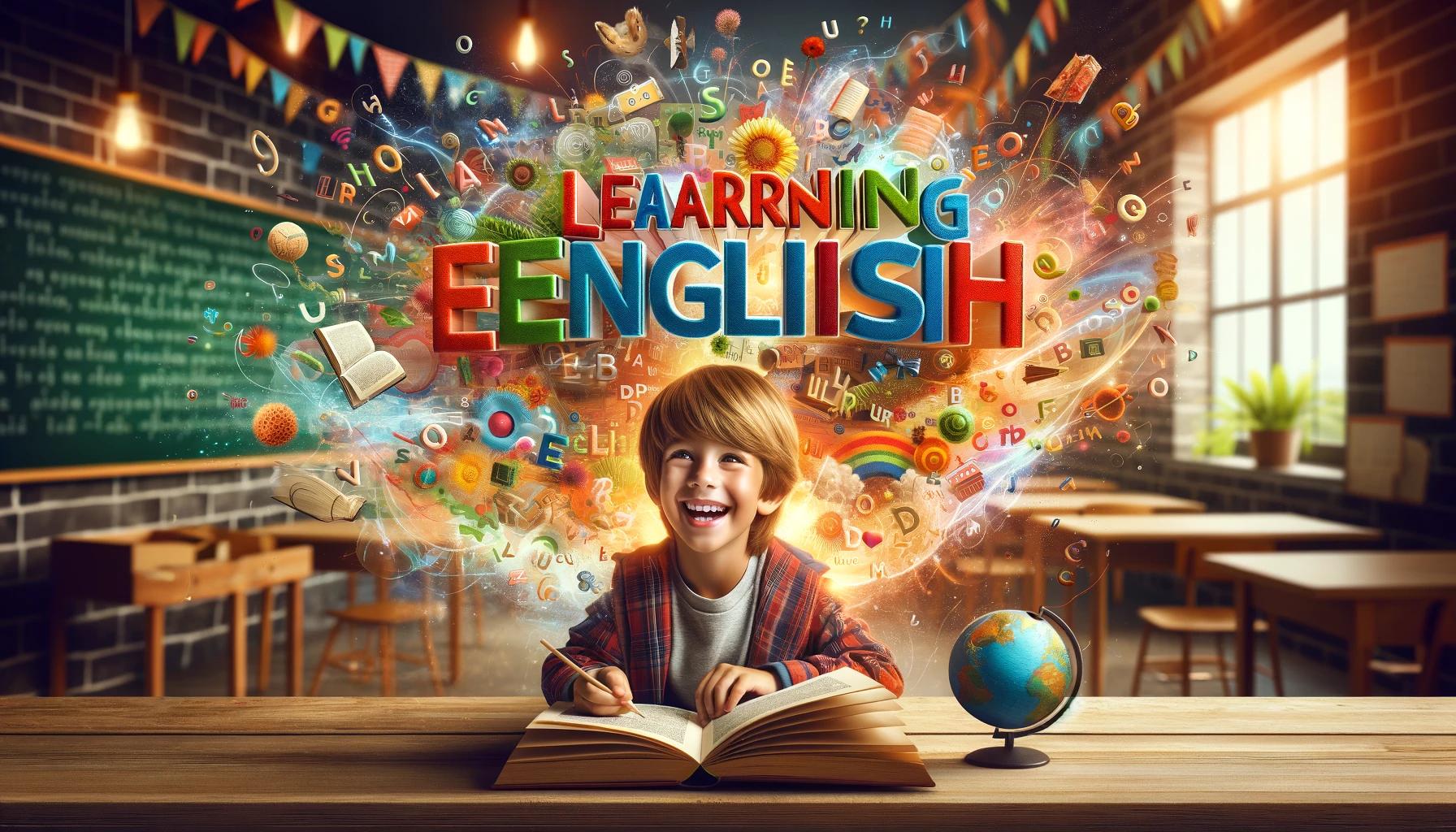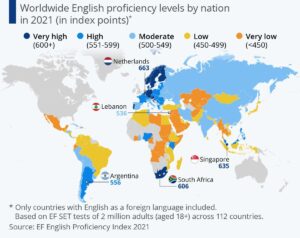
Discover why starting English classes early benefits kids beyond exams, fostering communication, creativity, and lifelong skills.
When someone asks, “Why should kids start learning English at a younger age?”, the first thought that pops into most people’s minds is “to ace their exams!”. And while that’s partly true—early English education can set a strong foundation for academic success—there’s so much more to it than just chasing grades. Let’s explore why English is so important, its global impact, and how starting early can make a big difference.
A Brief History: How English Became a Global Language

English wasn’t always the global powerhouse it is today. Starting as the language of Anglo-Saxons in England, it spread through invasions, colonization, and trade. The British Empire introduced English to its colonies, making it the language of administration, education, and commerce.
In the 20th century, the rise of the United States as an economic and cultural superpower reinforced English as the global lingua franca. Today, it’s spoken in over 100 countries and used as the primary or secondary language by more than 1.5 billion people worldwide. Whether you’re conducting business, studying abroad, or enjoying pop culture, English connects people across borders.
Top English-Speaking Countries and Where It’s Used Most

English is an official language in countries like:
- United States
- United Kingdom
- Canada
- Australia
- New Zealand
- South Africa
- India (as a second language)
- Singapore
Beyond these nations, English is the global language for business, international relations, and academia. It’s the dominant language on the internet, used in research papers, tech manuals, and even social media platforms.
Where Can Students Learn English?

With today’s technology, learning English has never been easier. Here are some popular platforms and resources for students:
- Duolingo – Fun and interactive for vocabulary and grammar.
- BBC Learning English – Great for improving listening and speaking skills.
- Khan Academy – Offers resources for English literature and writing.
- Coursera – Features courses from top universities like Stanford and Yale.
- Young Scholarz – A personalized approach to mastering English for academic excellence in IB and IGCSE.
English in Worldwide Renowned Curricula

English plays a pivotal role in many prestigious educational programs:
- IB (International Baccalaureate): The IB curriculum emphasizes critical thinking, global citizenship, and language proficiency. English is central to its Language and Literature courses, which are core to developing analytical skills.
- IGCSE (International General Certificate of Secondary Education): A globally recognized program where English is highly valued, with specific courses in English Language and English Literature.
- A Levels: Advanced studies in English literature and language are sought after by top universities.
- SAT and TOEFL: Essential for university admissions, where English proficiency is key.
These programs not only prepare students for exams but also for communication in global careers and academia.
The Power of Stories: Lessons Beyond the Classroom

English classes have profoundly shaped my life, and some works of literature have left an indelible mark on my perspective. Reading Death of a Salesman taught me about the fragility of dreams and the weight of societal expectations while Waiting for Godot opened my eyes to the complexities of existence and the human condition. These weren’t just “texts for exams”; they were lessons in life, empathy, and self-reflection.
When we engage with literature, we’re not just learning about characters and plots—we’re learning about ourselves. English classes allow us to explore these depths, unlocking a sense of connection to the world and to each other.
Why Should Kids Learn English Early?
Now that we know why English is important globally, let’s focus on why children should start learning it from a young age. Spoiler: It’s about much more than just exams!
1. Language, the Superpower of Young Minds

Have you noticed how kids can pick up a new word or phrase in the blink of an eye? That’s because their brains are like sponges, soaking in everything around them. Exposing children to English at an early age takes advantage of this natural ability. They don’t just memorize; they absorb. By the time they grow up, speaking and writing in English feels as natural as breathing.
Plus, younger learners are less afraid of making mistakes, which means they’ll experiment more with the language. This freedom to play with words is what builds fluency and creativity.
2. English as a Global Bridge: Boosting Confidence and Communication

Think about this: when a child can confidently say “hello” to a tourist or understand a cartoon in English, it boosts their self-esteem. English isn’t just a subject; it’s a bridge to new experiences and serves as a lingua franca—a universal language connecting people from different cultures. Starting early helps kids grow comfortable expressing themselves in this global language, which proves invaluable in every walk of life—be it making friends across cultures, collaborating on projects, or speaking up in class.
Confidence in communication is a life skill that goes far beyond exams. Early English classes nurture this skill naturally, without the pressure of test scores looming overhead.
3. Critical Thinking and Creativity

Learning English isn’t just about grammar and vocabulary. It’s also about stories, poems, and discussions. Think about all those fairy tales and picture books kids love. They don’t just improve language; they spark the imagination.
English classes teach kids to ask why and how—why did the wolf want to trick Little Red Riding Hood? How did Jack climb that beanstalk? These questions sharpen their critical thinking skills, which are essential for life, not just for school.
4. Adaptability to the Digital World

With English dominating the internet and technology, early exposure ensures children can access global resources, apps, and tools to enhance their knowledge and skills.
5. Of Course, Exams Do Matter

Yes, early English classes do help with exams, but it’s about much more than rote learning. Children who start early are already familiar with the language, so when exams roll around, they’re not cramming to pass—they’re building on what they already know. Their answers reflect understanding, not just memorization.
6. It’s an Investment, Not a Shortcut
Starting English classes early isn’t just about “getting ahead” academically. It’s an investment in a child’s personal growth. It’s about helping them see the world differently, express their thoughts clearly, and dream bigger.

Final Thoughts
So, is learning English at a younger age just about exams? Absolutely not! It’s about nurturing confident communicators, imaginative thinkers, and global citizens. Exams simply reflect the valuable skills and experiences gained along the way. Starting early ensures children grow not just academically but personally, preparing them for a connected world. 🌟
Ready to elevate your learning journey? Contact Young Scholarz today and transform education into an exciting adventure! At Young Scholarz, we specialize in helping students excel not only in English but across all IB and IGCSE subjects. By focusing on your unique strengths and providing personalized strategies, we ensure success that goes beyond grades. Whether it’s boosting academic performance, building confidence, or honing critical skills, we’re with you every step of the way!





